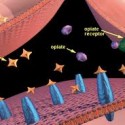Primary Care for Alcoholics
In treating alcohol abuse and alcoholism, “we haven’t yet reached the Prozac moment,” says Dr. Mark Willenbring, referring to the drugs that radically changed the treatment of depression. But Dr. Willenbring, an expert on treating alcohol addiction, predicts that the day is not far off when giving a pill and five minutes of advice to an alcohol abuser will be all that is needed to keep drinking under control.
Two such medications are already available, though they are not as effective as modern antidepressants have been for depression.
“We’re at the same place with alcohol abuse that the treatment of depression was at 40 years ago, when only psychiatrists treated it and most people with depression were never treated at all,” said Dr. Willenbring, the director the Division of Treatment and Recovery Research at the National Institute on Alcohol Abuse and Alcoholism.
Then came Prozac, followed by similar antidepressants that took the treatment of depression out of mental hospitals and psychiatric offices and put it in homes and in the offices of primary care doctors.
“Now almost all of depression is treated in primary care,” Dr. Willenbring said, “and two-thirds to three-fourths of depression is getting treated.”
But with alcohol dependence, he said, only one person in eight receives professional treatment.
“Those who get into treatment programs are the most severe alcoholics,” Dr. Willenbring said. “But the bulk of alcohol abusers have a more moderate form, with a better prognosis. Most could get well in primary care settings and not have to wait until they are at the end of their rope and forced to go into a rehabilitation program, which can be so stigmatizing.”
What is needed for controlling alcohol abuse early in the disease, he said, are drugs like Prozac that can be easily prescribed by primary care physicians to help people with moderate alcohol abuse. Several such drugs are now in the pipeline, Dr. Willenbring said.
The two already available — naltrexone and Topamax — are not yet the equivalent of Prozac for depression, but they can help many alcohol abusers learn to drink more moderately or abstain altogether. Naltrexone, now a low-cost generic, was originally developed to control drug addiction but was found to be more effective at reducing cravings for alcohol. Topamax, an antiseizure drug not yet available as a generic, has also been used to treat alcohol dependence, among other conditions.
Taken an hour before consuming alcohol, naltrexone blocks receptors in the brain that register “reward” and that reinforce a craving for alcohol. Within three to four months of starting treatment, naltrexone, when compared with a placebo, can reduce relapse to heavy drinking 20 to 40 percent, Dr. Willenbring said. Some European practitioners claim even greater effectiveness. By eliminating cravings for alcohol, the drug enables an abuser to drink more moderately or abstain entirely.
While naltrexone is not the final answer to alcohol abuse, it has been shown to be at least twice as effective as alcohol treatment programs and can avoid their stigmatizing consequences, which can include difficulty getting life insurance, jobs or security clearance.
Unfortunately, most primary care physicians know little or nothing about naltrexone, Dr. Willenbring said. He suggested that drinkers who need help controlling their intake ask their doctor for a prescription.
source: New York Times

